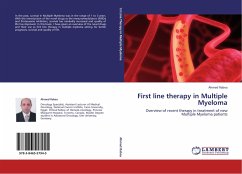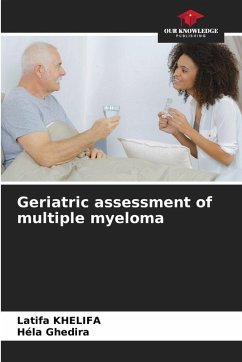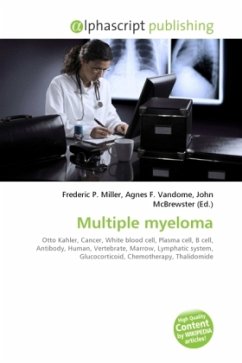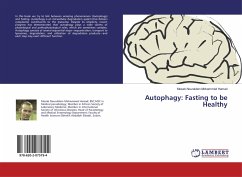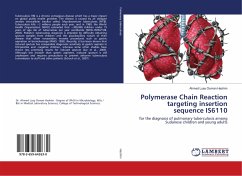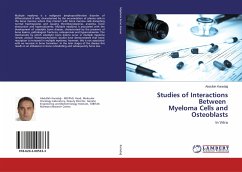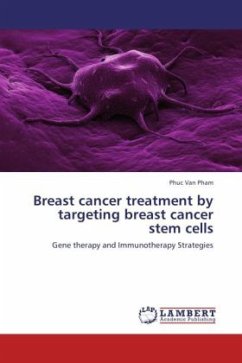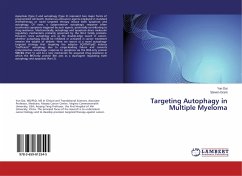
Targeting Autophagy in Multiple Myeloma
Versandkostenfrei!
Versandfertig in 6-10 Tagen
36,99 €
inkl. MwSt.

PAYBACK Punkte
18 °P sammeln!
Apoptosis (Type I) and autophagy (Type II) represent two major forms of programmed cell death. Numerous anticancer agents employed in standard chemotherapy or novel targeted therapy induce both apoptosis and autophagy. Of note, a cytoprotective autophagic response often counteracts apoptosis triggered by such agents, potentially contributing to drug-resistance. Mechanistically, autophagy and apoptosis share molecular regulatory mechanisms primarily governed by the Bcl-2 family proteins. However, since autophagy acts as the double-edge sword in cancer, whether autophagy should be inhibited or a...
Apoptosis (Type I) and autophagy (Type II) represent two major forms of programmed cell death. Numerous anticancer agents employed in standard chemotherapy or novel targeted therapy induce both apoptosis and autophagy. Of note, a cytoprotective autophagic response often counteracts apoptosis triggered by such agents, potentially contributing to drug-resistance. Mechanistically, autophagy and apoptosis share molecular regulatory mechanisms primarily governed by the Bcl-2 family proteins. However, since autophagy acts as the double-edge sword in cancer, whether autophagy should be inhibited or activated in cancer treatment remains the subject of debate. Here we report a) a novel autophagy-targeted strategy that targeting the adaptor SQSTM1/p62 induces "inefficient" autophagy due to cargo-loading failure and converts cytoprotective autophagic response to apoptosis via the BH3-only protein NBK/Bik (Part 1); and b) a new mechanism for acquired drug-resistance in which the BH3-only protein Bim acts as a dual-agent regulating both autophagy and apoptosis (Part 2).



